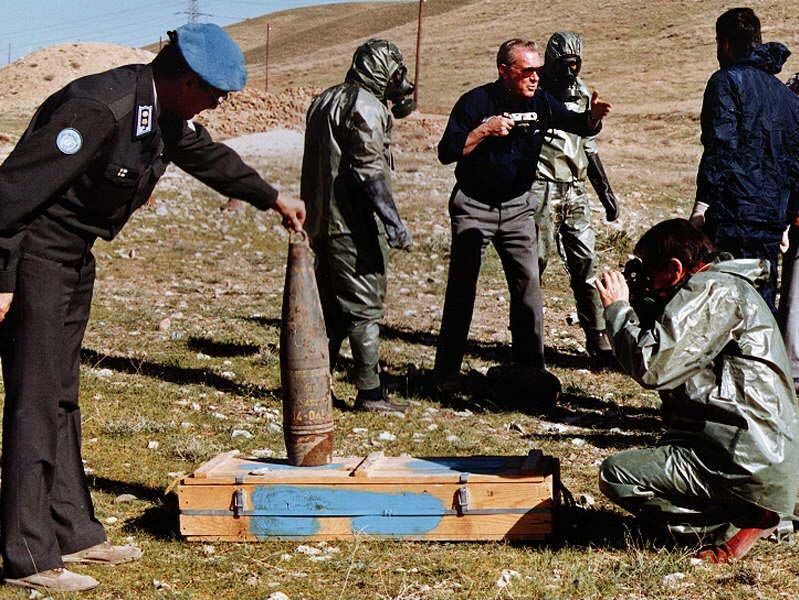Can UN inspectors find and destroy so many chemical weapons in Syria? Fareed Zakaria interviewed the UN’s chief weapons inspector. Richard Butler on Sunday:
ZAKARIA: So the bottom line is the inspections process, through all that difficult, actually worked.
BUTLER: It did work. In my last report to the Security Council in 1999, I made clear that we had had a full account of all of Iraq’s weapons of mass destruction with the exception, interestingly, of a small quantity of chemical weapons.
We couldn’t account for them. We knew that they’d been produced. We couldn’t find them. Iraq had either destroyed them or, and this is interesting in today’s context, we had an intelligence report that they’d moved them across the border into Syria to keep them away from us.
But basically, Fareed, the system did work and the bottom line to that, Fareed, and this may sound incredible naive on my part, but is a genuine willingness on the part of those being inspected to cooperate.
Now, that might sound a bit funny, a bit naive. We had that willingness from the Iraqi side for quite a while and then they started to withdraw it.
And I’ll make this point right here and now, this can work, what the Russian’s have proposed and the Syrians said they will agree to, it can work provided a system of the kind I’ve described is put in place.
But, above all, provided the Syrians are prepared to want and act to make it work. Cooperation, then it can be done. If they play a shell game, if they resist, it won’t be achieved.

Compared to past conflicts such as Iraq and Vietnam, the US has approached this issue from a whole other view. There is much more at risk and with the wonders of globalization, they have to be more cautious in their approaches to this kind of issues. Diplomacy seems more important today than what it was ten years ago, so seeking for the Syrian government’s cooperation for chemical weapons inspections is the way to go in order to keep this conflict contained. Moreover, disarming the government from chemical weapons will be a good advantage for Syrian rebels. Overthrowing the current Syrian regime is a main US goal, so any advantage for the rebels is a positive movement.
As Butler says, his view definitely stands out as naive to me. While Syria has stated that they will comply with UN weapons inspections and agree to destroy their chemical weapon stores, there have been reports of Syrian forces moving the chemical weapons around the country in order to make their discovery more difficult. Assad has tried to appear to the international community as cooperative and like the “good guy” during the civil war, but why would someone who agrees to destroy his chemical weapons have them moved and hidden? While I can understand that Syria would want to avoid missile strikes that the U.S. had been in support of until the agreement with Russia, if I’ve been following the situation correctly, the reports of moving the weapons have come out after Syria already agreed to destroy them. If I were in Butler’s position, I would not take Syria’s (the government’s nor the rebel’s) word on anything.
Although Syria has said that they will allow the UN to inspect their weapon stashes and destroy whatever chemical weapons they still posses I do not believe that they will fully comply with what they have “committed” to do. Additionally, even if the chemical weapons are removed the Assad’s regime is still able to oppress its citizens through the use of more conventional weapons. So overall this in my opinion is hardly a solution to the problem at hand; genocide.